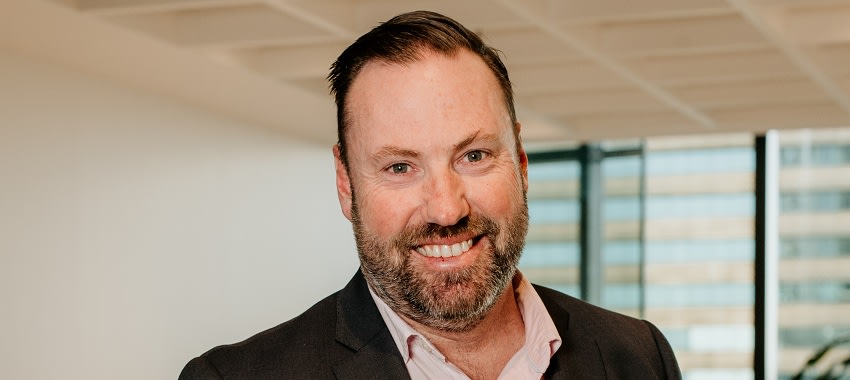
The role of a broker has always been about getting the best deal for the customer. But what is the best deal, exactly? Mathew Patterson, head of broker at Great Southern Bank, explores more.
The role of a broker has always been about getting the best deal for the customer. But what is the best deal, exactly? In a tight economy dealing with rising inflation, one might assume the best deal means securing the lowest interest rate. However, that’s not the only consideration for many Australians.
In fact, many customers are turning their attention towards the values and sustainability commitments of their lender. And while price might be the top priority for one client, values and social considerations might be the number one priority for another. As the cohort of conscious borrowers grows, brokers must take a more holistic view of their customers’ needs to find them the best deal possible — financially and non-financially.
What does being responsible or sustainable really mean anyway?
Once, the concept of responsible banking meant not lending money to people who couldn’t pay it back. The term has evolved more recently with words like ‘responsible’, ‘ethical’, and ‘sustainable’ being used interchangeably. But what does it really mean to be a responsible bank?
Well, today, people expect a bank to also be transparent about its policies, commitments, and performance around environmental action, social causes, and corporate governance — known together as ESG. But ESG commitments need to be far more than a corporate statement. Lenders need to be focused on how their actions translate into meaningful impact that not only fosters a sustainable environment but also supports broader communities and ensures transparent and responsible business practices.
Now more than ever, consumers are proactively seeking brands that align with their own values (according to Ipsos Global Trends 2021 report). And this extends to where they invest their money, and who they bank with, the Responsible Investment Association Australasia has found.
In fact, a survey by Great Southern Bank found 90 per cent of mortgage holders believe brokers should provide information about a potential lender’s ESG commitments. It also showed that nearly half (45 per cent) of those who had used a broker would have liked more transparency around lenders’ ethics and values during the comparison process.
However, brokers are not always meeting this demand. Despite the desire for more information about banks’ responsible business practices, more than half (54 per cent) of borrowers who used a broker said they were only provided information relating to costs — such as interest rates and terms and conditions — but not about the bank’s values or business practices. So, if we know almost all prospective borrowers want ESG information, isn’t providing this imperative to meeting “best interests” duties?
Brokering more responsible loans
New laws came into effect at the start of 2021 that stated a mortgage broker must act in the best interests of their clients or face hefty fines. When ASIC released its best interests regulatory guide (RG 273), it outlined how acting in the best interests of the consumer meant looking at the products holistically and evaluating the value and benefits they offer each individual consumer.
With the number of consumers seeking ESG-conscious lenders only expected to rise, brokers must gain a better understanding of each lender’s responsible business practices to help inform their customers’ decision making beyond product features and pricing. Some brokers may also need to consider expanding their lender panel to include a wider range of values-driven lenders.
There’s often a perception that younger customers are most concerned about the management of environmental issues. Research into Great Southern Bank’s own customer base showed 70 per cent of customers aged between 18 and 29 will strongly consider the bank’s management of environmental issues before choosing to stay.
But interestingly, the figures were not much less among 30–60-year-olds (55 per cent) and those aged over 60 (65 per cent), who shared the same concerns about the environment. So, brokers should also be prepared for existing customers across all age groups to have environmental and social queries when refinancing.
Existing home owners who’ve built up equity in their property can often afford to be more selective than first home buyers and it’s likely many of these customers may view the current climate as an opportunity to refinance with a bank that better aligns with their values.
Understanding the bigger picture
One of the biggest misconceptions is that choosing a responsible bank is more expensive. But this simply isn’t the case. In fact, Canstar research has found that customers with a home loan at Great Southern Bank made an estimated average saving of $1,182 over the year ending June 2022 compared to if their home loan was with one of the big four banks.
Values-based lenders have become more commonplace and there are several highly competitive options that hold their own against their competitors.
So in summary, it’s no longer enough for brokers to know if a financial institution lends to fossil fuel companies or for renewable energy. Socially and environmentally conscious consumers expect brokers to have a deeper understanding of lenders’ values and practices.
It’s why at Great Southern Bank, we’re focused on doing more to explain our social and environmental commitments to our broker network, so they can in turn empower borrowers to make an informed choice.
Only when this approach becomes the sector-wide norm will brokers have complete confidence that the loans they are recommending are truly in the best interests of their customers.
Mat Patterson is Great Southern Bank’s head of broker.
He brings deep knowledge and understanding of the Australian home loan market through his work over the last 20 years at some of the nation’s leading broker-focused lenders.
